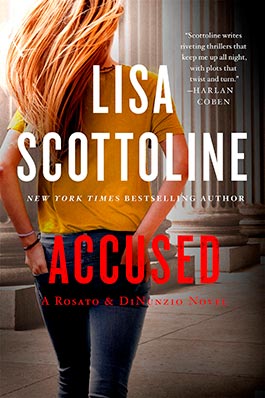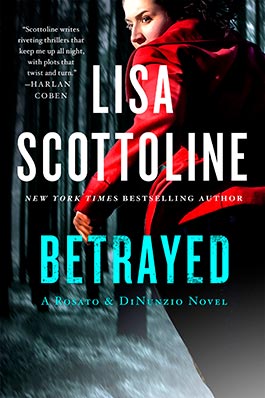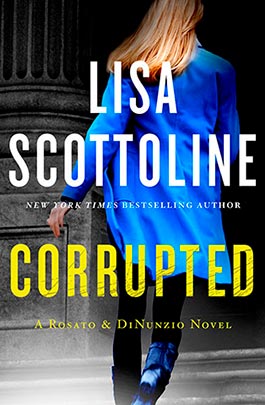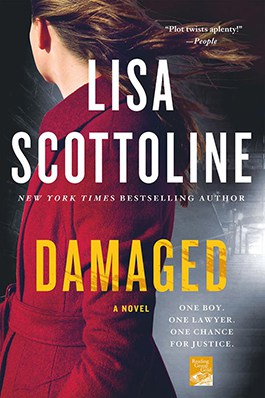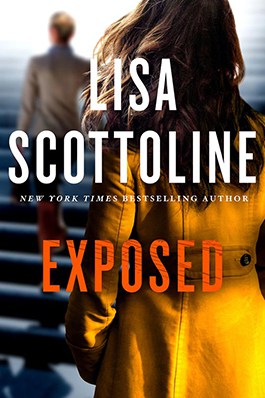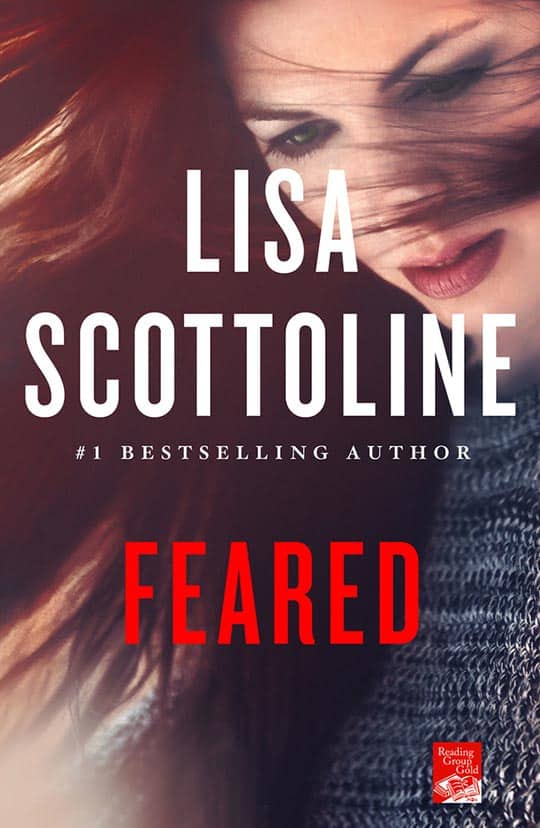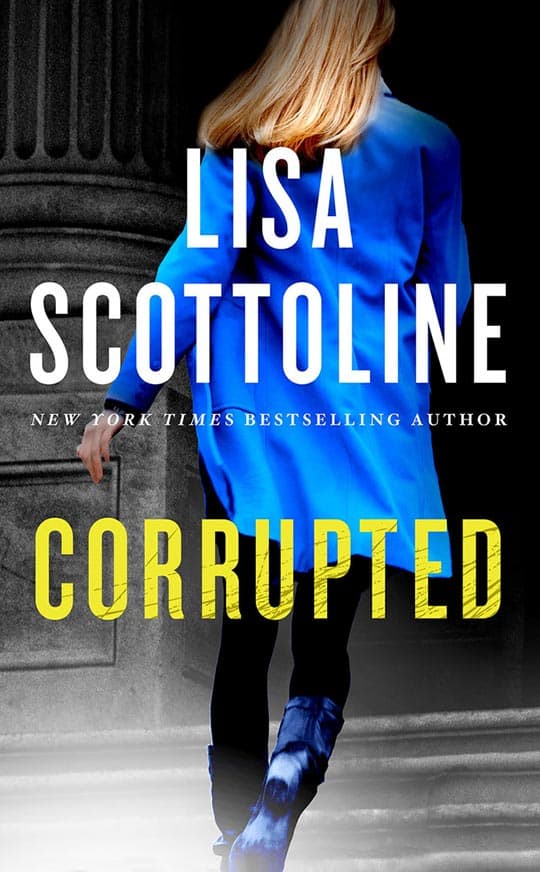
Corrupted
Rosato & DiNunzio, Book #3
A Top 20 Blockbuster by Amazon
Chosen by the American Bookseller’s Association for the Indie Next List
A Top Thriller by BN.com
ORDER THE BOOK
AUDIOBOOK
Bennie Rosato the founder of the Rosato & DiNunzio law firm hides her big heart beneath her tough-as-nails exterior and she doesn’t like to fail. Now, a case from her past shows her how differently things might have turned out. Thirteen years ago, Bennie Rosato took on Jason Leftavick, a twelve-year-old boy who was sent to a juvenile detention center after fighting a class bully. Bennie couldn’t free Jason, and to this day it’s the case that haunts her. Jason has grown up in and out of juvenile prison, and his adulthood hasn’t been any easier. Bennie no longer represents those accused of murder, but when Jason is indicted for killing the same bully he fought with as a kid, she sees no choice but to represent him. She doesn’t know whether or not to believe his claims of innocence, but she knows she owes him for past failures-of the law, of the juvenile justice system, and of herself. Forced to relive the darkest period of her life, Bennie will do everything in her power to get the truth, and justice.
“Scottoline’s Corrupted may be her biggest book yet.”
– Sara Nelson, Amazon Editorial Director
“Scottoline is an A lister all the way, and her Rosato series is always an A plus.”
– Booklist (starred review)
“Scottoline’s third entry in her ‘Rosato & DiNunzio’ series does not disappoint. Fans will be on the edge of their seats eager to discover what happens next.”
– Library Journal (starred review)
“There is nothing as riveting as a skilled writer creating tense courtroom scenes and Scottoline does that in Corrupted.”
– Huffington Post
Corrupted
By Lisa Scottoline
CHAPTER 1
Bennie Rosato hadn’t taken a murder case in years, but she’d have to take this one. She’d been working late when the call came in, from a time she didn’t want to remember and a place she didn’t want to revisit. Still, she’d said yes. She couldn’t assign the case to an associate, either. Nobody paid her debts but her. And she wanted redemption.
She lowered her head, hoisted her bags higher on her shoulder, and powered her way to Philadelphia police headquarters, near the tangled ramps to I-95 and the Schuylkill Expressway. It was almost midnight in the dead of January, with the sky frozen black except for a full moon, round as a bullethole. There was no one else on the street except a homeless man, rattling a can of coins at the cars stopped at a red light.
Bennie beelined for the building, called the Roundhouse owing to its shape, which was two massive circular sections stuck together like an old-school barbell. The design was no longer innovative, nor was the building, and cracks lined its precast-concrete façade. Its three stories of smoked windows were set lengthwise, and fluorescent lighting from within showed that blinds were broken or missing in every pane. PHILADELPHIA POLICE DEPARTMENT, read dark metal letters on the wall next to a mailbox, an overflowing trash can, and a Port-a-John.
Bennie opened the smoked glass door and let herself into an entrance with a wooden shield of the PPD next to a window of bulletproof glass. A young officer came to the window to meet her, wearing a blue shirt and a white UnderArmor turtleneck that revealed the telltale thickness of a Kevlar vest.
“Can I help you, miss?” he asked.
“Yes.” Bennie liked him immediately, as she was in her forties and couldn’t remember the last time anybody called her miss. “I have a client in Homicide. His name is Jason Lefkavick.”
“Hold on a sec.” The officer consulted an old computer for a moment. “Detective Gallagher will meet you upstairs at the Unit. Go to the door on your left. I’ll need to see ID, inside.”
“Sure, thanks.” Bennie entered the massive round lobby, produced her ID, went through the metal detector, then took a grimy elevator to the fourth floor, where the ceiling lights flickered and the floor tile was gray with filth. She passed a bathroom with an open door and a leaking faucet. Running overhead were exposed wires and plumbing wrapped with duct tape.
HOMICIDE, read an old plaque ahead, and the hallway ended in a closed wooden door with a keypad and a dark window of reinforced glass. She knocked, facing her own reflection. Her hair was a tangle of long blond curls twisted into a topknot by a ponytail holder, and she tried to smooth it in place. She wore only light makeup, now worn off, so her wide-set blue eyes were unlined. She was fully six feet tall, which came in handy in a courtroom, if less so on a date. She hadn’t seen anybody since she and Grady broke up. She’d have thought she was dead below the waist, but for the fact that her legs were so dry they itched all winter.
“You must be Bennie Rosato.” The door was opened by a bald detective with brown eyes and a ruddy complexion. He had on a white shirt with a dark green sweater, khaki slacks, and loafers and looked about her age, but was shorter. He flashed a professional smile and extended a large hand. “I’m Mike Gallagher, good to meet you.”
“You too, Detective.” Bennie shook his hand, stepping inside a cramped waiting area with rubbery black benches and two large bulletin boards labeled WANTED FOR MURDER, with thirty-odd photographs of men, and one woman.
“Call me Mike. I’ve heard a lot about you. I know you were a buddy of Azzic’s and he spoke well of you.”
“Thanks.” Bennie managed a smile but felt too antsy for small talk. “So do you think I can see my client?”
“Sure, no problem. Follow me.” Detective Gallagher led her past the memorial wall, then into the squad room, which was mostly empty. The only remotely modern appliance was a medium-sized flat-screen television playing football highlights on mute; the walls were a scuffed light blue and the dropped ceiling a grimy white, with more bundled wiring. The gray tile floor was dirty, and crammed everywhere were mismatched file cabinets covered with taped notices about Courtroom Numbers, Phillies tickets, Computer Training for the Forensics Lab, and a bumper sticker that read, YOU BOOKIN’?
“The squad room’s the same, I see.” Bennie followed him past the cabinets.
“Still a dump, right? They’re talking about moving us uptown, God knows when.” Detective Gallagher stopped in front of the closed door to Interview Room A and slid aside a large barrel lock.
“Did you videotape your interview with him?”
“No, the machine’s broken. You’ll see it dangling in the corner.”
“How about the audio?”
“We gave up on audio recordings. It sounded like everybody was underwater. The D.A. told us he couldn’t use them. Take as long as you like, then come find me. My desk is the first one on the right.” Detective Gallagher gestured to a connecting room behind him. “A word of warning. It’s not pretty in there.”
“The room? Why am I not surprised?”
“No, your client. And don’t blame us, we didn’t do it.”
“What do you mean?” Bennie asked, concerned.
She opened the door, and got her answer.
Book Trailer
The Truth Behind the Fiction in Corrupted
About the Rosato & DiNunzio Series
Corrupted
Questions for Book Clubs
- In Corrupted, what are reminded that the justice system isn’t always just, which is a travesty, but even more devastating when juveniles are involved. What did you learn about the juvenile justice system that was surprising to you? What kind of changes need to be made to protect children?
- In writing Corrupted, Lisa wanted to look at the long-lasting effects incarceration on juveniles. Unjustly imprisoned or not, what are your thoughts on the way we deal with juvenile offenders? What can we do differently as a society to work towards helping them at a younger age, and potentially rehabilitating them? Should innocently incarcerated victims be less accountable for their actions later in life? To what degree is the justice system responsible for creating future criminals?
- Adding to the hardship of Jason’s incarceration, is the fact that his father was billed to cover some of the costs for keeping him. Do you agree or disagree with this idea? Should parents have to foot part of the bill when their child is convicted of a crime? Why or why not? Should adults incur the same costs for their imprisonment? Why do you think juveniles are treated different than adults, even though they are supposed to have the same rights in the eyes of the law?
- You can’t help who you fall in love with. Certainly, Bennie’s love in Corrupted is not without complications. Ethically, Bennie was fully within her right to date Declan. What obligation, if any, did Bennie have to share information about her personal life with her client? What did you think about Jason’s father’s reaction to finding out? What could Bennie have done differently?
- Like many women, Bennie always puts others’ needs before her own, and she tends to lead with her head, not her heart. In Corrupted we see her finally do something strictly for her personal happiness and it backfires. When in your life has this happened to you? Knowing the outcome, would you do it again the same way, given the chance? Why or why not? What have you done outside your comfort zone that has turned out great?
- Although the aggressor, Richie became a victim of the system, too. As you learn more about Richie and his life, how does your opinion of him change? Had Richie not been caught in the scandal, do you think Richie’s life would have turned out much different? In what ways?
- In the Commonwealth of Pennsylvania, judges are elected, not appointed. Do you agree or disagree with this practice? Why or why not? What are the benefits to having elected judges, and what are the risks? Judges hold immense power in our legal system. Do you think that the system adequately monitors them?
- The Kids for Cash scandal happened after Columbine and around the time of 9/11. “Zero Tolerance” became an important concept at the time. What do you think about a zero tolerance policy when it comes to kids? In what ways is it necessary, and in what ways have we taken it too far? Are we, as a society, smothering our children’s creativity and individuality with our intense scrutiny of every move they make, or is is necessary, given the times in which we live?
- Lou plays an important role in Bennie’s life, although he likely doesn’t realize how much she needs him, not just professionally, but personally. Other than your parents, who are some of the most influential people in your life? Who’s advice do you value the most? Are there people in your life for whom you are the unsuspecting role model?
- Bennie is a bit of a lone wolf. Although surrounded by people all the time, she tends to stay on the outskirts, especially at the law firm. Why do you think she does this? Is it her personality, or just a necessary part of being the boss? Do you think that bosses can be truly friends with their colleagues? What are the benefits and what are the challenges?

